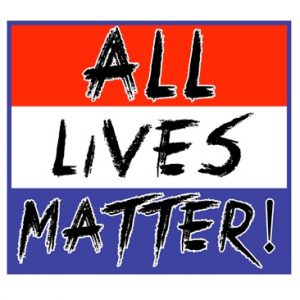(Akiit.com) Growing up in inner city Detroit and attending Detroit Public Schools in the ‘90s, the racial makeup of my classroom wasn’t much more diverse than a kid going to school in the heartland of Iowa. Just as theirs was uniformly white, mine was uniformly black. With that said, I’m always intrigued by friends and associates from college and around the way, who grew up with kids of all races and thus have more mixed friend lists on their social media pages. What I’m grateful to miss out on is reading troubling statuses and tweets on the topic of race.
In the days following the shooting deaths of Alton Sterling, Philando Castile and the five officers in Dallas, the internet activists took to social media by first expressing outrage, second sadness and third anger at their “friends” who continued to post insensitive statements. Shielded by a virtually all-black social upbringing, I miss out on educating millennials of other races on black issues directly. However after I read a comment on an old classmate’s status from a young white guy telling her to “forget about the old white men, they’re a lost cause,” I felt compelled to write my own open letter to those that I would otherwise not be able to reach.
Dear “All Lives Matter” millennials, you are part of America’s race problem. You see, a post-racial society is neither a reality in the United States nor anywhere else in the world. Take a look at the undercurrents of racism and xenophobia sweeping across the world that caused lower income Brits to vote to leave the EU and Austria almost elect a rumored Nazi sympathizer.
While I sincerely appreciate your support of black musicians that show you we, as in black people, can be fun and are not always a threat, I don’t appreciate you calling the police on me as I walk down the street I live on at night after you leave their concerts. I also want you to understand how supporting the likes of Lena Dunham, who recently said that the art of men like Kanye West ? who in many ways challenges the narrative for black men through his artistic and entrepreneurial endeavors ? makes her feel “unsafe,” is problematic, if not dangerous, for people of color everywhere.
It’s dangerous because even without acting on your feelings of being “unsafe” at the sight of everyday black Americans by confronting us directly, calling the authorities on us immediately places our lives in danger. When I say danger, I don’t mean the type of mythical danger you imagined from all the conditioning over the years through the 6 o’clock news and videos your parents told you not to watch on MTV. I mean the kind of danger that has led to the violent deaths of Renisha McBride, Trayvon Martin, Michael Brown and two souls last week; all taken and justified because someone said “I feared for my life.”
That threat of violence isn’t just limited to brothers and sisters walking home with packs of skittles or asking for help on a door step, it spills over into the lives of all black Americans. It has a different and negative effect on people like myself who was told at one of the world’s “most admired companies” I should smile more to ensure people in my office I was happy. It affects people like me who was told by my manager at the same organization that she felt “hostility” coming from me as I sat in a chair waiting for her to discuss my performance review.
I’m not grouping all non-black citizens of the world into the same bucket, because I’ve seen and experienced what that does first hand. I’m also not suggesting that all non-black social media users who sympathize with black Americans who are fighting for equal justice in this country are on the bandwagon temporarily.
What I am saying is recognize how the power of your words and your actions have a direct impact on the very lives that you’re tweeting “matter.” Understand how saying “All Lives Matter” makes you compliant with a system that supports those words while writing in the fine print “except if you’re black.”
During the memorial service for the fallen officers in Dallas, one of the most racially polarizing Presidents in the past 20 years said “Too often we judge people that are different by their worst example but ourselves by our best intentions.” Allies, friends and those straddling the fence, I ask that you ask yourselves to take a closer look at your intentions when you say “all lives matter” and think about the impact it has on people who are fighting to stand under that very umbrella.
Columnist; Michael Tomlin-Crutchfield









Leave a Reply